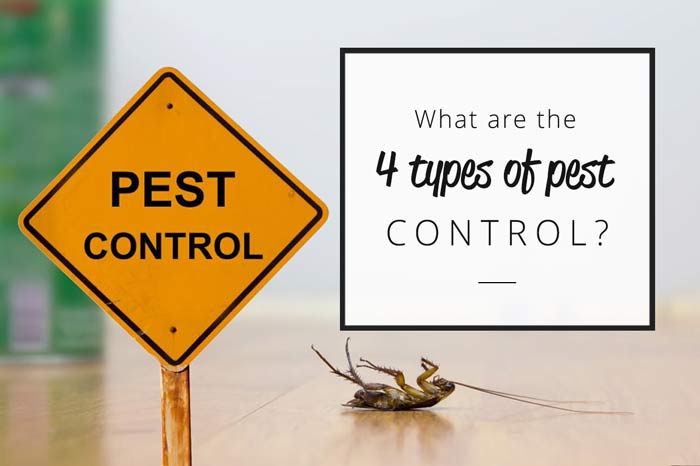What Does Pest Control Mean?
What Does Pest Control Mean?
Blog Article
5 Easy Facts About Pest Control Shown
Table of Contents6 Simple Techniques For Pest ControlPest Control - An OverviewLittle Known Questions About Pest Control.Getting My Pest Control To WorkThe Buzz on Pest Control
Limitations of Chemical Management Be able to analyze bug problems, determine if management is essential, and make suitable recommendations utilizing IPM techniques. Be acquainted with various techniques of insect monitoring - their benefits and restrictions.This chapter talks about (IPM), a strategy that utilizes expertise about bugs and their, practices, nonchemical techniques, and chemicals to take care of insect troubles. Extra information regarding IPM for certain plants is included in phases that concentrate on those plants. Parasites in a garden or landscape may consist of insects and mites, weeds,, creatures, and birds.
Lots of people hurry to pull, hoe, or spray every weed they see. Bugs and weeds, nonetheless, contribute in the. After growing a yard or establishing a grass, the all-natural procedure of plant sequence begins to restore and nonnative plants. A weed growing in a grass represents the initial stage in a series of events that, if enabled to proceed, could at some point lead to a forest.
What we call "pests" are part of a natural system at work. Only human beings take into consideration particular types pests when they take place where they are not desired.
The Single Strategy To Use For Pest Control
Insects at risk to a chemical were quickly eliminated, leaving resistant ones to breed and increase. It came to be clear that pesticides alone would not solve all pest troubles. Rather, overuse of pesticides created the growth of resistant bugs. Researchers started to develop a new technique to pest control. This new method was explained as integrated pest management (IPM).
An IPM plan permits some level of pests in the setting. Insects are a lot less likely to make it through a program that uses various approaches of minimizing their populaces. Integrated pest administration was first suggested by entomologists due to the fact that bugs were the initial team of pests to prove tough to take care of with chemicals alone.
parasite and host accurately. and consider financial or aesthetic injury. A threshold is the point at which action need to be taken. a therapy strategy making use of mechanical, cultural, organic, or chemical controls, or a combination of these techniques. success of therapies. IPM has extended beyond insects to management of all pest populations: weeds, disease microorganisms, and animals.
The Main Principles Of Pest Control
Management rather than removal of parasites is the objective. An IPM strategy begins with a cautious examination of each bug problem.
Clover growing in a grass may be deemed an undesirable weed, but as a vegetable it is manufacturing nitrogen for the dirt and the blossoms are providing nectar to honey bees and various other. Tolerance for some weeds may be component of an IPM strategy. might be consuming the leaves of a plant, however when they are determined as the larvae of Eastern tiger swallowtail butterflies, their damage may be tolerated so we can delight in the stunning butterfly.

The 2nd most important tool check my site in parasite administration is very early treatment. Responding to issues quickly, prior to they have time to increase, requires a less dramatic intervention.
Some Known Incorrect Statements About Pest Control
Many safe, useful, nonchemical methods of plant protection and pest management might reduce or remove the requirement to spray. Other methods are most advantageous when made use of with chemicals. To implement administration practices appropriately and to decrease losses, garden enthusiasts must understand the sorts of insects that strike plants and recognize pest biology.

Carrying out a dirt test and applying only the check it out recommended amount of plant food and lime takes full advantage of the benefit to the plant while reducing problems connected to extreme usage of fertilizer - Pest Control. Covering the soil with several inches of mulch shields the plant in numerous methods: decreasing soil water loss to dissipation, reducing weed competitors, supplying nutrients, and creating an appropriate environment for earthworms and microbes that maintain the soil loose for origins and break down organic material to release nutrients
If mulch touches the trunk, it can produce a way for voles, bacteria, and fungi to strike the plant. Do not make use of manure or garden compost that has actually not completely decomposed as a top clothing due to the fact that it can motivate unfavorable insects. Study suggests that farming is harmful to you can find out more soil structure.
Pest Control for Dummies
If tilling is considered essential, consider doing it in the loss when the life cycles of lots of insects brings them near the surface. At the surface area, bugs become revealed to the weather condition in addition to birds and other all-natural opponents. Fall tilling can likewise destroy bugs in crop residues. Use disease-free and insect-free licensed seeds and plants if offered.
Report this page